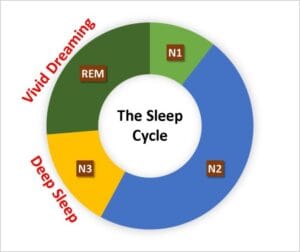Usually no one considers their immune system when they are healthy. This is a problem because by the time you get sick it may be too late to give it a thought. You should try to strengthen your immune system every day. This involves adopting smart habits not just for cold and flu season but all year round. The good thing is you don’t have to focus on expensive supplements or difficult techniques – just a few changes you can fit into your current routine. When adopting these habits you’ll find your immune system not only becomes stronger but you’ll feel healthier, happier, and more relaxed.
This article outlines familiar habits and some that you may not have consider for supporting your immune system.

Feed Your Defense: How to Boost Your Immune System Naturally
Your immune system is a reflection of you health and your health is directly related to what you eat. The common saying “you are what you eat” means that if you eat junk, your body and your immune system will directly reflect that. This is why you food choices matter more than people realize. The goal of eating health food isn’t just to avoid getting sick but to boost your immune system and stay strong so you can fight off infection when it comes knocking.
Eat Nutrient-Dense Foods That Pack a Punch
A lot of us skip meals due to convenience. This can catch up with you if it happens regularly. Every time you eat you provide nutrients to your body – nutrients that you need to function well. If you don’t get enough zinc, vitamin D, vitamin C or magnesium in your diet, for example, your immune system will be affected.
To get what you need for a healthy immune system, focus on:
- Leafy greens like spinach or kale for folate and vitamin A
- Eggs and fatty fish for bioavailable vitamin D and choline
- Colorful vegetables—especially peppers and carrots—for antioxidants
- Red meat and pumpkin seeds for high-absorption zinc
Fill the Gaps With Smart Supplements
Even if it were possible to get all the nutrients from the food you eat, you body may still miss out. As you get older your ability to absorb nutrients decreases. This is why you should consider a good quality supplement to help out. They don’t replace eating real food but they will fill in the gaps.
Consider these nutrient supplements:
- Vitamin D3 + K2: Supports immune cells and helps calcium absorption
- Zinc: Necessary for white blood cell function
- Magnesium: Needed to help activate vitamin D
- Vitamin C: Helps reduce inflammation and protects cells from being damaged
To add an extra layer of protection onto your immune system you may want to consider certain foods that are known as powerful combatants of illness:
- Garlic: Natural antibacterial containing allicin that may reduce cold symptoms
- Ginger: Lowers inflammation and soothes the gut
- Turmeric (with black pepper): Strong anti-inflammatory that may calm an overactive immune response
- Ginseng: Supports immune cells and can increase energy during recovery
- Elderberry: May help block viruses from entering your cells
- Quercetin: Helps reduce inflammation and supports zinc absorption into cells
You shouldn’t worry about taking all of these. Taking one or two when you know your immune system is compromised can make a difference if you become ill. Choose what is available or what seems to work best for you. For example, I took ginseng regularly when I lived in South Korea as a tea product. My family regularly cooks with ginger and garlic so these are easy for me to consume. Try each of the above and add what you like to your routine.

Fix Your Breathing: Nasal > Mouth
Poor breathing habits is one of the quickest ways to bring about illness and a destruction of your immune system. Improper breathing, such as breathing through your mouth, breathing quickly, or breathing into and with your chest can negatively impact your life. Breathing through your nose, slowly, lightly and deeply from your diaphragm can do the opposite.
Your nose, for example, was designed almost solely for breathing with your mouth simply as a backup. Your nose cleans and filters air before it hits your lungs. It traps dust, allergies, and bacteria and warms and humidifies the air before it reaches your lungs allowing them to work better. It also produces nitric oxide which reduces inflammation and protects against infection. Nasal breathing makes a huge difference in how your immune system handles external threats.
Mouth breathing, on the other hand, skips all of that. It dries out your mouth, lowers nitric oxide levels, and lets unfiltered air enter your lungs. Over time, this weakens your immune defenses making you more likely to get sick, feel tired, and find it difficult to sleep soundly. It also increases your levels of stress, which further weakens your immune system over time.
You should do the following to fix your breathing: close your mouth and breath from your diaphragm, slowly and as lightly as possible..
How Nasal Breathing Supports Immunity
- Boosts nitric oxide – This molecule helps kill harmful viruses and bacteria in your nose and lungs.
- Improves oxygen delivery – Nasal breathing allows better oxygen uptake into your muscles and cells.
- Reduces inflammation – It keeps your breathing steady and calm, reducing the stress load on your body.
- Keeps your airways moist – This helps trap and flush out germs before they spread.
Diaphragmatic Breathing Helps Your Lymphatic System
Your lymphatic system acts as your body’s drainage system. It moves waste and immune cells through the body. But unlike your heart, it doesn’t have the ability to pump this on its own. It needs muscle movement and changes in pressure to move things along.
Deep, slow breathing from the diaphragm helps with this. When you breathe, the up and down movement of your diaphragm creates this pressure, much like a pump. This helps your lymphatic system flush out toxins and keep your immune cells flowing.

Get Deep Sleep, Not Just Enough Sleep
While getting 7 to 9 hours of sleep is good, if it isn’t restful deep sleep you may be doing harm to your health and immune system.
During deep sleep your body goes through repair. Your immune system resets, and your brain clears out waste. This is a time when your muscles recover and your hormones adjust.
Without sufficient deep sleep your defenses weaken and your body isn’t given enough time to repair itself. Even if you rest in bed for the requisite minimum of 7 hours, if your sleep is poor, you will wake feeling tired, run down and will be vulnerable to illness.
What Happens During Deep Sleep?
- Your brain slows down, entering delta wave activity.
- The glymphatic system—your brain’s cleaning system flushes out toxins.
- Immune cells like T-cells and natural killer (NK) cells become more active.
- Inflammation drops, which helps your body stay in balance.
Without sufficient deep sleep none of the above will happen. This results in slower healing and more inflammation causing a greater likelihood of getting sick.
Signs You’re Not Getting Enough Deep Sleep
- You wake up tired even after sleeping more that 7 hours
- You’re sick more often and take longer to recover
- You rely on caffeine to stay alert during the day
- You feel moody or forget thing more easily
Increase the Amount of Deep Sleep Without Sleeping More
The following tips help your brain and body adjust to get deeper sleep:
- Stick to a regular bedtime and wake time—even on weekends
- Block blue light at night to support natural melatonin release
- Keep your room dark, cool, and quiet
- Avoid alcohol and late-night eating, both of which reduce deep sleep
- Add a few minutes of meditation with nasal breathing to ready yourself for sleep
- Catch the first morning rays by taking a walk outside for a few minutes to set your circadian rhythm
You can also help fall into deep sleep with the right supplements, including Magnesium, L-theanine, and valerian root to help calm your nervous system. Consider binaural beats or yoga nidra such as non-sleep deep rest (NSDR) sessions before bed if your mind tends to race at night.
Deep, consistent sleep is one of the most powerful ways to stay healthy. You don’t need more hours—you need better ones.

Manage Stress Daily, Not Occasionally
Stress can linger and weaken your immune system over time. You need to consider addressing this issue daily, not just when you have had a bad day. Your body can normally handle short bursts of stress, however, constant low levels of stress that may come to feel normal is the type of stress you need to manage daily. If cortisol, the stress hormone, stays high, too long, it begins to block your immune response. It also slows the healing process and makes the chances of catching a virus or remaining sick longer more likely.
Why It Matters
When you remain calm, your immune system is stronger, your sleep is better and you recover faster when you do get sick. This is only possible if you address the impact of stress daily, not just when you want to feel better.
Try These Proven Stress-Busters
- Diaphragmatic nasal breathing – Calms your nervous system in under 5 minutes. Lowers your heart rate and cortisol.
- Walking outside – Especially in the morning. Sunlight boosts serotonin and balances your mood.
- Short movement breaks – Stretching or walking resets your brain and helps clear your mind of problems
- Meditation – In just 10 minutes a day you can train your mind to stay calm under pressure. It slows your breathing, reduces anxiety, and improves immune function.
- Laughter and connection – Talking to a friend or watching something funny lowers stress hormones and strengthens immunity.
- Planning the next day – Writing things down stops your brain from spinning when you’re trying to fall asleep.

Use Tech to Stay Ahead of Illness
The great thing about modern technology is that you don’t need to wait until you get sick to do something. With health tracking tools and other technology you can help avoid getting sick.
Some wearable devices can identify early warning signs your body sends out, such as changes in body temperature, resting heart rate changes, and changes in breathing patterns. Devices like Oura Ring, Garmin and Apple watches and WHOOP bands can pick up many of these warning signs before symptoms can appear. This provides you time to take action by changing your behavior before full-blown illness hits.
What to Watch For
These tools monitor key metrics, including:
- Heart rate variability (HRV) – variability is a strong indicator of recovery and resilience
- Resting heart rate – tends to rise before illness strikes
- Skin temperature – even a small uptick can point to inflammation
- Sleep quality and duration – poor sleep signals stress and greater risk
- Breathing rate – elevated night-time breaths can indicate strain on your system
- Blood glucose levels – high measure can indicate whether you are at risk of diabetes.
By tracking this information daily you can monitor for concerning patterns or trends, This way you can act quickly to address the issue. This is especially helpful for those over 50 where a change in a health indicator could spell major issues down the road.
Air Cleaners – The First Line of Defense
If you get a good quality air cleaner you can improve your chances of having fewer airborne viruses, allergens, and pollutants. Most air cleaners have high-efficiency particulate air (HEPA) filters which can remove over 99% of small particulates, including bacteria and viruses from indoor air. Why not keep your immune system from having to work overtime by fighting unnecessary battles and let it concentrate on real threats.
Conclusion: Strong Immunity Starts with the Basics
There is no need to go overboard with the suggestions in this article. Add those that you can more easily work into your routine to build and maintain a stronger immune system. For example, getting an air filter or going for a walk in the woods may be simple things to adopt. For others, improving one’s diet and adding supplements works well. Over time work on developing better sleeping and breathing habits, two suggestions, along with supplements, that may have the biggest positive impact on your immune system.
Modern life in many ways is easier but also more difficult due the complexity introduced by so much available knowledge and ever changing technology. Sometimes we look for simple, easy choices, such as processed foods, programmable thermostats and regular demands (self inflicted or not) on our sleep routine. By adopting small but smart habits over time you can gradually create a routine that supports a healthy life and immune system. The great thing is that many of the things you would want to do to improve your health also boosts your immune system.
Through a strong immune system you can more easily regain your edge, particularly as you get older. Strengthen it now so you don’t have to fight harder later.
Check out How to Best Avoid Getting Sick for additional ways to strengthen your immune system.







